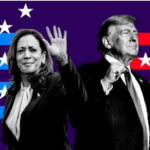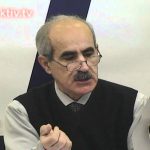 By Juliet Eilperin and Tom Hamburger, The Washington Post
By Juliet Eilperin and Tom Hamburger, The Washington Post
The decision on whether to approve the Keystone XL oil pipeline is a political headache for President Obama. But to five of his former aides, it represents a business opportunity.
Four of them — Bill Burton, Stephanie Cutter, Jim Papa and Paul Tewes — work as consultants for opponents of the project, which would carry heavy crude oil from Canada to Gulf Coast refineries. Another, former White House communications director Anita Dunn, counts the project’s sponsor, TransCanada, among the clients of her communications firm.
Keystone XL is just one of several upcoming administration decisions providing lucrative work for former Obama advisers on issues ranging from gun control to mining to legalized gambling. Just this week, three of Obama’s top former political advisers — Robert Gibbs, Jim Messina and David Plouffe — were given five-figure checks to deliver remarks at a forum in the former Soviet republic of Azerbaijan, which is in the midst of a campaign to burnish its image in Washington.
Obama came into office promising that his administration would hew to higher standards than his predecessors did. He implemented rules barring former aides from directly lobbying the government for two years and frequently decries the influence of “special interests” in Washington.
But the efforts have done little to slow a tide of groups hiring former top aides as highly paid consultants, speakers and media advisers in an effort to influence the administration — part of a longtime Washington practice in which interest groups seek access to the White House by hiring people who used to work there.
The activities also pose a political challenge for Obama, who will be put in the position of making decisions on Keystone XL and other controversial issues that his former employees have taken sides on.
“Obama’s made a really bold step trying to rein in the revolving door and keep people from cashing in on their executive branch experience, but some people are pushing the envelope and are trying to find ways around that,” said Craig Holman, government affairs lobbyist for Public Citizen.
In a statement, White House spokesman Eric Schultz said, “Our goal has been to reduce the influence of special interests in Washington — which we’ve done more than any administration in history.”
“These restrictions are intended to avoid conflicts of interests, but do not and should not prohibit former government officials from expressing their opinions or participating in a public exchange of ideas,” he added.
Connections matter
Those who hire former Obama aides say they hope to capitalize on their connections to the White House. The advocacy group Trout Unlimited, for example, hired Tewes, former White House spokesman Tommy Vietor and former speechwriter Jon Favreau this year to help in their efforts against a proposed gold mine near Alaska’s Bristol Bay. The group wants the Environmental Protection Agency to protect a valuable salmon fishery from the proposed mining operation.
“These are people with access to the administration, and we are working to tell the stories of these real people who are struggling to pursue their way of life, and make sure the president hears this and has a good grasp of what’s at stake,” said Shoren Brown, Trout Unlimited’s Bristol Bay campaign director.
In other recent examples, Bank of America has retained Precision Strategies — which employs Cutter and former chief Treasury Department spokeswoman Jenni R. LeCompte — for general strategic advice.
Messina has set up his own consulting shop, the Messina Group, and has signed up the Caesars Palace casino as a client. Gibbs is also joining forces with former White House spokesman Ben LaBolt to form a “strategic communications” firm.
Several advocacy group officials interviewed for this article said hiring the president’s former aides makes sense for several reasons: They understand how decision-making works in the White House; they have a record of success; and they amount to political celebrities who can attract the attention of journalists and policymakers alike.
“This is their professional experience and skill set, and it is neither surprising nor inappropriate that they are asked to speak and consult within their area of expertise,” said Robert Bauer, a former White House counsel under Obama who vets speaking appearances for Messina and Plouffe.
Profitable advocacy
Tiernan Sittenfeld, senior vice president for government affairs at the League of Conservation Voters, said her group hired Burton, the former White House deputy press secretary, to highlight problems posed by Keystone XL. The State Department is still conducting an environmental review of the project.
“As a known quantity, he’s able to bring attention to just how risky the pipeline is in a way that’s beneficial,” she said.
Both Burton and Papa, who served as special assistant to the president for legislative affairs, now work for the Global Strategy Group.
“We’re helping to run a public affairs campaign, which is different than acting as a lobbyist,” said Burton, who serves as a senior adviser to LCV and has participated in conference calls with reporters on the group’s behalf. “People know I have friends in the White House, but our focus is limited primarily to drawing media attention to this important issue.”
Vietor, one of those working to halt the Bristol Bay mining project, said he and his colleagues were “making the argument to the White House this is about jobs.” The group’s PR campaign has included online advertising and outreach to Washington journalists.
Some, but not all, former Obama aides run their client lists by the White House; Dunn did so for two years after leaving the administration.
Dunn, Cutter and Tewes declined to comment.
A wide variety of interest groups, corporations and foreign governments are willing to pay high fees to hear former White House aides speak about politics or policy. The Harry Walker Agency in New York lists Gibbs and Messina among its clients. Plouffe is also an active speaker, commanding $20,000 to $50,000 for major appearances, financial disclosure records show.
A conference and its critics
Both men, along with Plouffe, were among those who spoke this week at a conference in Baku, Azerbaijan, titled “The U.S.-Azerbaijan Convention.” Conference materials promoted “special sessions” with the former Obama aides, as well as the U.S. ambassador and State Department officials, former senator Richard G. Lugar (R-Ind.), former deputy defense secretary Paul D. Wolfowitz, House Democrats Ruben Hinojosa (Tex.), Sheila Jackson Lee (Tex.) and Yvette Clark (N.Y.), and other legislators of both parties.
Azerbaijan’s government employs the Podesta Group as its Washington lobbyist. The country, bordered by Iran and Russia, is a key producer of oil and gas for Europe and Israel.
The two-day conference was sponsored by several energy companies led by the State Oil Company of the Azerbaijan Republic (SOCAR), but the convention’s expenses were largely underwritten by the Turquoise Council of Americans and Eurasians, a Houston-based advocacy organization.
Azerbaijan’s president, Ilham Aliyev, is in the midst of a campaign to build support in Washington and among other Western countries amid allegations of corruption and the jailing of dissidents. Radio Free Europe, a U.S.-funded service, said it was denied entry to this week’s conference.
The Institute for Reporters’ Freedom and Safety, an Azerbaijani dissident group, said in a statement this week that the conference “appears to be yet another publicity stunt for an increasingly authoritarian regime,” and that the “U.S. delegation has missed a golden opportunity to send a message of solidarity to civil society in Azerbaijan.”
Simon Maghakyan of Amnesty International USA said it was ironic that Messina, Obama’s 2012 campaign manager, would deliver a speech about “electing a president” in a country whose recent election process, accompanied by human rights violations, was criticized by the State Department.
“The situation there is dire, and it seems to be getting worse every day,” said Maghakyan, a South Caucasus human rights specialist.
The government responds to such critics by saying it is committed to human rights and cooperates closely with international organizations such as the Council of Europe in implementing political reforms.
Gibbs, Messina and Plouffe wrote in separate e-mails that they agreed to attend the Baku conference after Bauer screened it for any problems, and said that they raised the issue of human rights in their remarks. All three declined to say how much they were paid.
Plouffe said he told the audience that Azerbaijan was “a young democracy that had work to do to improve it.”
In 2009, Plouffe was criticized by human rights activists for another speech in Azerbaijan arranged by a lobbyist with ties to the government. He later donated his $50,000 fee to a pro-democracy group.
Alice Crites and Steven Mufson contributed to this report.


